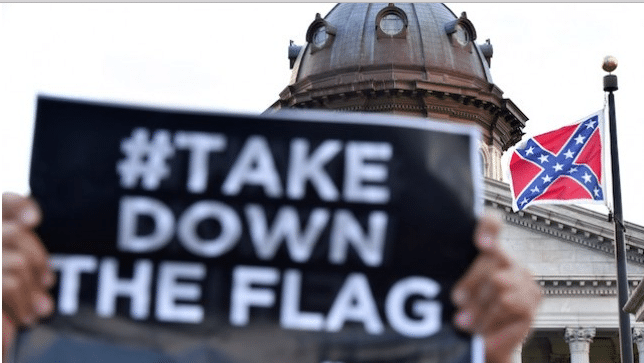
by World Moms Blog | Jul 14, 2015 | 2015, Human Rights, USA, World Moms Blog, World Motherhood

On June 17th, 2015, nine lives were suddenly lost in Charleston, South Carolina in the USA, when a man joined a prayer group in a church and opened fire. Today, on the blog, we carry the passionate words of a mother from South Carolina, Yolanda M. McCloud of “Lesser Known Feats of Awesomeness“, to tell the story…
There are no words that can describe the sorrow and despair that has been felt around my state and this nation in the past several weeks. June 17th will forever be emblazoned on our brains as the day when one man, one gun, one mission, walked into a church, not just any church, Mother Emanuel AME, one of the South’s most historically black churches, and changed nine families forever. One man, one failed mission, one gun, nine people.
As I reflect on this, I have said in the weeks following that this type of act just does not happen in South Carolina, let alone in a church. What type of monster walks into a church, sits through Bible study, and then shoots the people he has sat around with for an hour? Who does that to anyone? As we embark on the months ahead, I am saddened by the display of hatred that has taken place following the dreadful day.
Charleston has shown the world how to weep for the lost, but the rest of our State and country has become unraveled at the seams embattled in the same argument, over a flag.
A flag, the center of the unrest at this moment, not the nine lives that were doing God’s work by worshipping and learning his word and the principles for which Jesus died for. No, a scrap of cloth that was created out of hate. That is what society has made the central conversation. And now, it feels more like we are back in the 1960’s with the burning of black churches, too.
The flag issue seems to be the core of the unrest and the destruction of houses of worship around the South. The creator of this flag, William T. Thompson called this flag the “White Man’s Flag” and said that “As a people we are fighting to maintain the heaven-ordained supremacy of the white man over the inferior or colored race; a white flag would thus be emblematic of our cause…As a national emblem, it is significant of our higher cause, the cause of a superior race, and a higher civilization contending against ignorance, infidelity, and barbarism.” Supremacy, white man, and colored race…heritage.
The debate over heritage and the cause of a war long by gone, a war that was fought so that men and women in the South could keep their slaves, human beings that they owned like cattle, should not be happening today.
A scrap of cloth that now the governor of South Carolina and the governing body has found the courage to say, “enough is enough,” and remove it in honor of the Emanuel 9. I am honored that I was able to see it come down on July 10th, 2015 and pray that it never graces its perch again.
Now this scrap of cloth has long been used as a tool of hate and is being revered by many as a large part of their heritage, citing that the Civil War was fought over state’s rights. In 1962, Senator Strom Thurmond stood in front of Congress to ask for more money for schools to stay segregated and the flag was hoisted to the State House dome and stayed there as rebellion against the civil rights movement. It is being seen to many as a national treasure.
As I sit and watch friends and others debate the cause of the Civil War and the creation of this flag, they talk about how their heritage is wrapped up and tied in a scrap of cloth.
And I begin to wonder, what if instead of black people, slaves bore the shade of skin like those supporting the confederate flag? Would there still be the debate over heritage?
I was born and raised in the South. I grew up knowing that people with my complexion were viewed as “lesser than” because we are darker than my lighter complexioned brothers and sisters.
I grew up knowing that there used to be bathrooms, water fountains, entrances for blacks and they weren’t allowed to use property or doors marked “whites only.” That blacks and whites went to separate schools and the words “separate but equal” were often used when things were anything but. We are aware more than ever that this flag is used as a weapon of supremacy over my race and the race of many others.
We are living in dangerous times. Where is the respect that so many people of color protested, marched, sat-in and risked their lives to achieve in our country’s history? How and why do we find ourselves unsafe again through such a hateful act just because of the color of our skin?
We are living in times where people do not seem to care for life and respect each other after all the civil rights progress that has been made since the 1960s. People are hurling hurtful, unintelligent statements about race on social media for many to see. I see it.
We are living in times where church is no longer sacred. When I see the images of black churches being burned to the ground, it saddens me further because those churches, they are all of our churches no matter our denomination, no matter our race, no matter our gender. They are all God’s House, and we are all welcome. To see them go up in flames is sad because once again, God’s House is not sacred. Our country was founded on the principles of freedom of religion.
If a person is different, meaning if they are not equal to a person in ethnicity, finances, or educational background, then they are less. This extends far beyond “white privilege”. This is the message I am receiving. The message I, and so many others, are feeling.
Churches can be rebuilt, flags can be removed, but life cannot be restored. And as people weigh in on both sides of this debate, I think what gets lost is that children lost their parents, families lost their aunts, uncles, and grandparents. Nine lives lost, one of those lives I knew and applauded and appreciated.
I ask, How many more lives do we have to lose to violence because my skin doesn’t look like yours?”
I weep for the Charleston 9, I weep for Charleston the City, and I weep for the world that thinks that it’s okay to threaten, demean, and belittle those that do not believe in the same thing that others believe in.
I hope that my home state, the great State of South Carolina, will remember this day and the removal of the flag and continue to send a message that hate is no longer allowed.
I hope that the people who are burning churches are caught and publicly known as the hate filled monsters they are. If no other place on this earth is sacred and safe, a church should be sacred and safe. Mother Emanuel and every place of worship should be sacred and safe.
It shouldn’t be about culture, heritage, or being white or black. It should be about people. I ask you to empathize. It’s about the fact that Mother Emanuel could have been the Catholic Church up the street, could have been Temple, and could have been any mosque around the corner. It could have happened in North Carolina, Georgia, New York, or Maine. Your church, my church, from Greeleyville, South Carolina to the State of Tennessee and beyond, the rubble that once was a house of worship could have been made anywhere. The hate must stop.
We lift their families up in prayer, and we remind the world that greatness was lost because of one man, one gun, one failed mission, and nine families and a nation are forever changed.
This is an original guest post to World Moms Blog by Yolanda M. Gordon of South Carolina, USA. You can find her on her blog, “Lesser Known Feats of Awesomeness.”
IMAGE CREDIT: WWW.THEHILL.COM
World Moms Blog is an award winning website which writes from over 30 countries on the topics of motherhood, culture, human rights and social good. Over 70 international contributors share their stories from around the globe, bonded by the common thread of motherhood and wanting a better world for their children.
World Moms Blog was listed by Forbes Woman as one of the "Best 100 Websites for Women 2012 & 2013" and also called a "must read" by the NY Times Motherlode in 2013. Our Senior Editor in India, Purnima Ramakrishnan, was awarded the BlogHer International Activist Award in 2013.
More Posts

by Alison Fraser | Jul 7, 2015 | Advice, Africa, Canada, Childhood, Education, Family, Girls, Global Citizenship, Humanity, Poverty, Social Good, World Voice
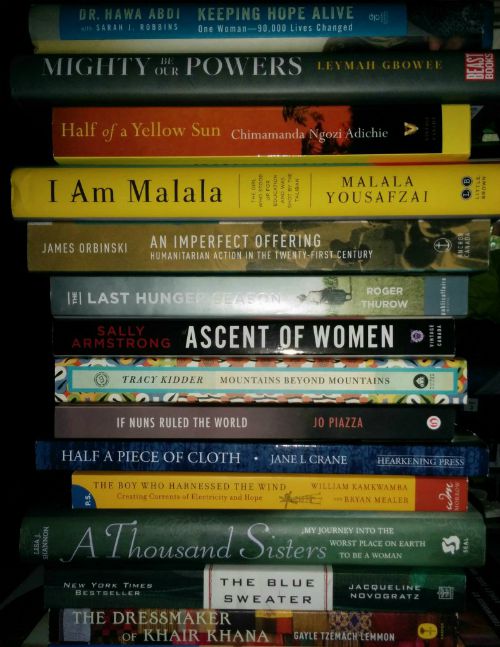
I am an avid reader, especially during the summer months, reading outside each evening with my daughters under the stars on our back porch. I go back and forth between fiction and non-fiction, between heart-wrenching and laugh out loud funny, and between popular bestsellers and hidden gems. So, I thought I would share my meaningful reads list for this summer. These are most often the hidden gems that aren’t featured on lists of number one hits but are just as good, if not better, than those popular reads.
I won’t go into detail about plots and story-lines, but will say that each of these books was a page turner that left me pondering what I had read for weeks after.
If I had to pick a favourite, I would decline…it would be too difficult. But, if I had to pick one that resonated the most with me, it would be “If Nuns Ruled the World”.
Being a Catholic myself, I have always felt that nuns were never given the credit they deserved for the work they were doing throughout the world. We all know of Mother Theresa and her work with the sick, lonely and poor, but not much more is known of nuns working in this day and age. We often hear stories of the Pope and those of the Vatican, but what about those hard-working nuns who are on the ground changing lives every single day in the most adverse of conditions???
This book features the incredible stories of nuns who have taken chances, gone against protocol, helped those that others had given up on, and did it all under the watchful eye of many who disapproved of their work. These nuns are courageous, spunky, lively, funny and most of all, selfless and good-hearted.
I was so inspired by their stories that I wrote to a few of them to let them know….and they wrote me back!
I can honestly say that if the nuns who were featured in this book, really did rule the world, it would be a world of peace, justice, love, acceptance and empathy.
When my three young daughters saw me compiling this list, they too wanted to be involved. They hurried to find their favourite meaningful reads and have compiled them here as well:
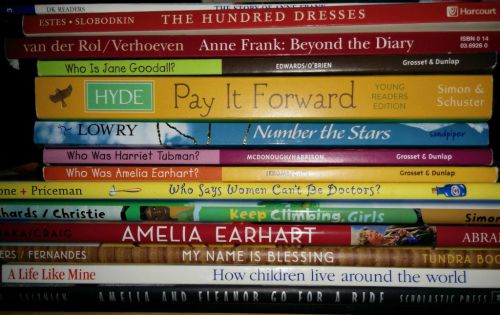
Quynn, who is 8, loves the book “Who Says Women Can’t Be Doctors” and has wanted to become a doctor ever since.
Camryn, who is 10, loves the “Who is/was…” series. She has read about Jane Goodall, Hellen Keller, Eleanor Roosevelt, Harriet Tubman and Amelia Earhart, to name just a few. Wanting to be a pilot, she especially loves all books about Amelia Earhart.
Ryleigh, who is 11 loves to read about Anne Frank and anything related to the Holocaust. She read “Number the Stars” in two days and has not stopped talking about it. It is so hard for her to wrap her young mind around the stories of girls her age who survived such atrocities in our history.
So, if you are looking for some great books to read this summer, we hope that you will enjoy some of our recommendations. And, if you have suggestions for us, we would love to hear those as well!
What is on your summer reading list?
This is an original post written for World Moms Blog by Alison Fraser who is founder of the non-profit Mom2MomAfrica.
Alison Fraser is the mother of three young girls ranging in age from 5 to 9 years old. She lives with her family in Cambridge, Ontario, Canada. Alison works as an Environmental Toxicologist with a human environment consulting company and is an active member of the Society of Environmental Toxicology and Chemistry (SETAC). She is also the founder and director of the Canadian Not for Profit Organization, Mom2Mom Africa, which serves to fund the school fees of children and young women in rural Tanzania. Recently recognized and awarded a "Women of Waterloo Region" award, Alison is very involved in charitable events within her community including Christmas Toy and School Backpack Drives for the local foodbank.
More Posts - Website
Follow Me:



by Mannahattamamma (UAE) | Jul 2, 2015 | 2015, Childhood, Feminism, Global Citizenship, Government, Health, Human Rights, International, Motherhood, Newborn Health, Poverty, Save The Children, UAE, USA, World Motherhood

Save The Children
There are some causes that are tricky to rally people around: not everyone wants to ban fur coats, for instance; not everyone thinks that restaurants should post calorie counts on their menus. There are other causes, though, that seem pretty much no-brainers: access to clean water, for instance. Is anyone really going to say “yeah, dirty water, I’m a big fan!” Or saving children. Is anyone really going to say (publicly, anyway) that it’s not a good idea to save children?
Even if we all agree that children should be saved, however, we know that all over the world there are children who need saving, in places where governments and infrastructure don’t seem capable of doing what needs to be done. That’s where organizations like Save the Children step in: they help stitch together the services that can help families survive and give governments a much needed hand.
Save the Children came out with its annual “State of the World’s Mothers” list, which uses five metrics to determine where it’s good to be a mother (and a child). The metrics – maternal health, children’s well-being, educational status (of mothers), economic status, and political status— are combined to give an overall score, which determines where a country falls on the list. Of 179 countries, there are the usual suspects at the bottom of the list—countries where war, natural disasters, and poverty combine in a perfect storm of catastrophe: places like Haiti, or Sudan, or Pakistan.
But there are surprises, too, like the fact that the United States doesn’t even crack the top twenty. Nope, the good ol’ US of A pulls in at 33.
Thirty-third in the world, for a country whose overall wealth and education trumps pretty much everywhere else. The US was beaten by, among others, Slovenia, Belarus, Croatia, and the Czech Republic, as well as all those Scandinavian countries that consistently outperform everyone else when it comes to quality of life issues.
You know what most of these places have that the US does not? A significantly higher percentage of women in government. I suppose a statistician would say that fact is not causal but correlative, and I’m sure that some people would insist that just having women in government won’t automatically make things better for women and children (and thus society), but maybe we should try, and then see what happens?
I live at the moment in Abu Dhabi, in the United Arab Emirates, another wealthy country that doesn’t crack the top twenty on this list. I suppose that for many Westerners, it might seem impossible any Middle Eastern country would score well on a list having to do with women’s lives, but the statistics on this list might help defuse those stereotypes. According to this index, 17.5% of seats in UAE government organizations are held by women, compared to 19.5% in the US; in terms of lifetime risk of maternal death, it is better to be a woman in the UAE: 1 in 5800 versus 1 in 1800 in the US. Women in the US average about 16 years of schooling, women in the UAE about 13; and women in the US tend to be wealthier than women in the UAE (53K for the US, 38K for the UAE).
The Save the Children list doesn’t index maternity leave policy, but that offers another interesting point of comparison.
Women in the UAE only receive 45 days of maternity leave, which isn’t enough, obviously, as any woman who has given birth understands. Women in the US get twelve weeks of maternity leave (although I had to call it “disability” leave in order to ensure that I got the requisite number of days). Twelve weeks, that is, of unpaid leave. John Oliver brilliantly skewered this policy on Mother’s Day, pointing out that the United States aligns with Papua, New Guinea, as the only two countries in the world with no paid parental leave policy. In the UAE, if a woman has a medical certificate that attests to her need for more time at home, she can take up to 100 days of additional (unpaid) leave.
Organizations like Save the Children do invaluable, back-breaking work among desperate populations, but their work raises a question that those of us who live with more privilege should be asking–loudly–of ourselves and our communities: why aren’t we all tied for first place? What has to happen to force “resource-rich” countries take care of its most vulnerable citizens? Why aren’t we doing better?
Where does your country rank in this list? And how do you think your country can do better? Any thoughts?
This is an original post to World Moms Blog by Deborah Quinn in the United Arab Emirates of “Mannahattamamma.”
Photo credit to ‘Save The Children’.
After twenty-plus years in Manhattan, Deborah Quinn and her family moved to Abu Dhabi (in the United Arab Emirates), where she spends a great deal of time driving her sons back and forth to soccer practice. She writes about travel, politics, feminism, education, and the absurdities of living in a place where temperatures regularly go above 110F.
Deborah can also be found on her blog, Mannahattamamma.
More Posts
Follow Me:

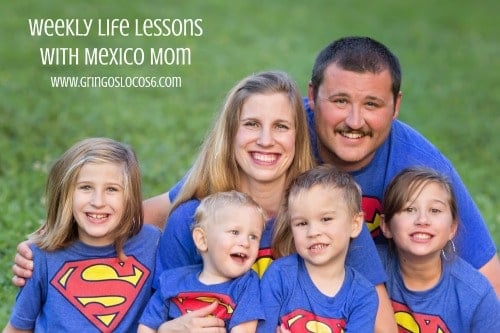
by Tina Marie Ernspiker | Jun 26, 2015 | 2015, Exercise, Expat Life, Kids, Life Lesson, Living Abroad, Mexico, Nature, Travel, Vacationing, World Motherhood, Younger Children
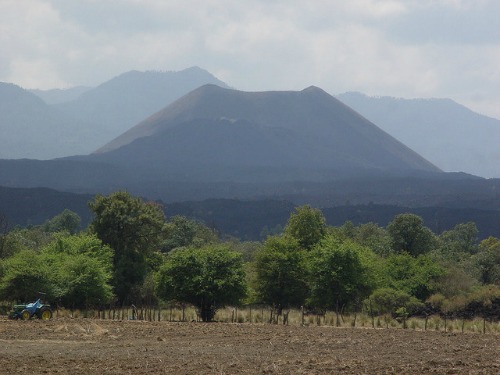
As a wife of one and a mom of four, it seems like I am always learning and discovering! I know I am not alone. Let’s just admit it: The world is a big place, life is a lesson, and children can be the best teachers. Normally my series, Life Lessons with Mexico Mom, is hosted on Los Gringos Locos, but today I am posting here on World Moms Blog.
Here are my insights and experiences as a Mexico Mom after we climbed Parícutin volcano in Southern Mexico. I don’t have the images edited yet or I would share! Stay tuned and watch for them on my blog. In the meantime enjoy our crazy experience. (more…)

by Kyla P'an (Portugal) | Jun 25, 2015 | 2015, Awareness, Being Considerate, Child Care, Education, Girls, Helping, Life, Life Lesson, Motherhood, Parenting, Responsibility, USA, World Motherhood
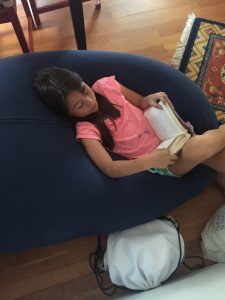 Last week I took my daughter to a local book store to spend a gift card she received for her birthday. My daughter loves books and had a hard time deciding what she wanted most, to purchase the final books in one of her existing collections or get something totally new.
Last week I took my daughter to a local book store to spend a gift card she received for her birthday. My daughter loves books and had a hard time deciding what she wanted most, to purchase the final books in one of her existing collections or get something totally new.
While I was in a different section, my daughter engaged the children’s department manager in a book discussion. Evidently sharing with the woman all of her latest good-reads, which included much of the Percy Jackson series by Rick Riordan, all of the Harry Potters, and several non-fictions like I Am Malala and A Long Walk to Water.
When I arrived back on the scene, the woman commended me for raising such a voracious reader and said she was amazed that my daughter went to public school, being convinced that only private schools could produce such a 3rd grade equivalent.
I didn’t know if I should be flattered or offended.
The woman, who was in her late 50’s, was a retired educator herself and clearly had a deep passion for books and strong opinions about appropriate reading levels. She impressed upon me that many of my daughter’s book choices were advanced for her age and encouraged me to consider steering her away from further indulgences.
This sentiment concerned me because, until recently, I had kept close tabs on what my children were reading and most of the advanced books were ones we read together. But lately, my daughter had been zooming ahead of me, finding pockets of reading time at school and also before lights out at night.
Admitedly, I hadn’t read any of the Percy Jackson books. Knowing that the books had been made in to PG-13 movies did have me somewhat concerned about content but was I really hearing this book specialist right? Was she really trying to stymie my child’s enthusiasm for reading by directing her choices?
The woman was trying to point out that my daughter is only a third grader once and there were plenty of sweet, age-appropriate books out there for her to indulge in. Didn’t I want to save these 6th, 7th and 8th grade books for later?
I really had to think about this.
After all aren’t I always trying to slow my daughter’s maturity? Aren’t I the same mother that won’t let her watch teen television shows because they’re too sassy and full of content ahead of her age? Could books be presenting the same issue?
I’ve grappled with this for the better part of 7 days now. What are the demigods in Percy Jackson doing up there at Camp Half Blood? Aside from the reality of Malala Yousafzai getting shot point blank by the Taliban, what fictional characters might be playing out scandalous scenes in my daughter’s young mind from The Secret Benedict Society?
Does it make me a less engaged parent if I don’t keep my finger on the pulse of my childrens’ literary lives? Do I need to give up my own sacred reading time to be sure I’m on topic with my kids?
A writer friend of mine told me once that the difference between books and movies was that movies spoon feed us all of the images and visuals in a story whereas books let our imaginations fill in the scenery.
When kids read books with ideas or content beyond their experience levels, their minds fill in the pictures age appropriately.
I saw this first hand when My daughter read Harry Potter and the Sorcerer’s Stone in first grade without having bad dreams but when she saw the movie in second grade, she had nightmares about the final images of Voldemort for months.
I love my daughter passion for reading and I’m proud of her advanced and eclectic book selections but now there’s a little nagging voice whispering in my ear every time she picks up a new and unfamiliar novel.
And in the end, instead of helping us find a few new, good books, I think the well-intentioned saleswoman may have done more harm than good.
Where do you stand with letting your children read ahead of their age level? Do you think this saleswoman had a point?
This is an original post for World Moms Blog from our senior editor and mom to two, Kyla P’an.
The image used in this post is credited to the author.
Kyla was born in suburban Philadelphia but spent most of her time growing up in New England. She took her first big, solo-trip at age 14, when she traveled to visit a friend on a small Greek island. Since then, travels have included: three months on the European rails, three years studying and working in Japan, and nine months taking the slow route back from Japan to the US when she was done. In addition to her work as Managing Editor of World Moms Network, Kyla is a freelance writer, copy editor, recovering triathlete and occasional blogger. Until recently, she and her husband resided outside of Boston, Massachusetts, where they were raising two spunky kids, two frisky cats, a snail, a fish and a snake. They now live outside of Lisbon, Portugal with two spunky teens and three frisky cats. You can read more about Kyla’s outlook on the world and parenting on her personal blogs, Growing Muses And Muses Where We Go
More Posts - Website
Follow Me:


by Ecoziva (Brazil) | Jun 19, 2015 | 2015, Brazil, Family, Family Travel, Home, Husband, Kids, Life, Moving, Relocating, Travel, World Motherhood, Younger Children
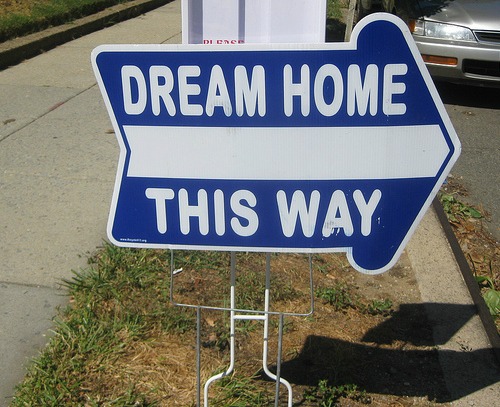
With the exception of a six month stay in Canada, our family has lived in the exact same house from the time our eldest son turned one to today, almost ten years later. I often find myself wondering what kind of impact that will have on our children, since when I was a child my family moved from house to house several times, including one big move from the USA to Brazil.
I believe that for children, there are advantages and disadvantages both to moving around a lot and to staying put their entire childhood. Moving around – especially if these moves are to new cities or even countries – gives them new perspectives of the world. Staying put, in turn, gives them a sense of stability and security. (more…)
Eco, from the greek oikos means home; Ziva has many meanings and roots, including Hebrew (brilliance, light), Slovenian (goddess of life) and Sanskrit (blessing). In Brazil, where EcoZiva has lived for most of her life, giving birth is often termed “giving the light”; thus, she thought, a mother is “home to light” during the nine months of pregnancy, and so the penname EcoZiva came to be for World Moms Blog.
Born in the USA in a multi-ethnic extended family, EcoZiva is married and the mother of two boys (aged 12 and three) and a five-year-old girl and a three yearboy. She is trained as a biologist and presently an university researcher/professor, but also a volunteer at the local environmental movement.
More Posts

























